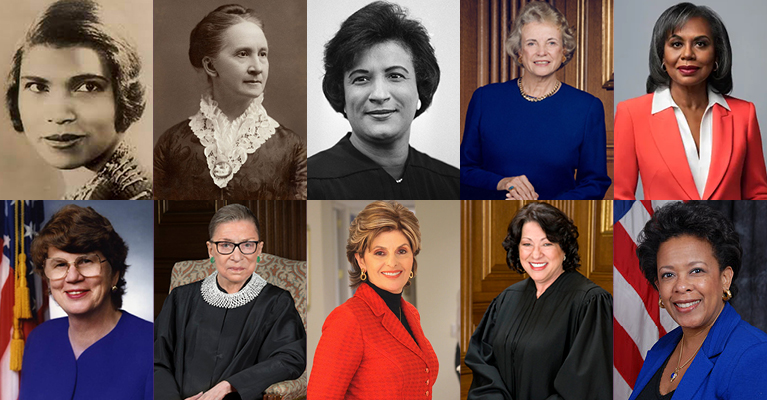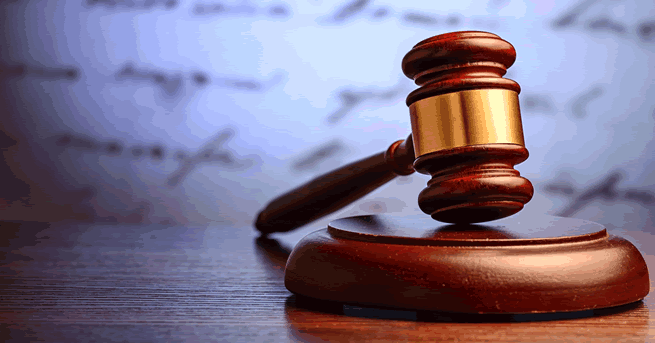Success Stories from a Leading Appeal Lawyer
Success Stories from a Leading Appeal Lawyer
Blog Article
Discover the Duty and Duties of an Appellate Legal Representative in the Legal System
These legal professionals are tasked with a collection of obligations that expand far past the court room, influencing the very fabric of our legal structure. By thoroughly looking into lawful precedents, crafting influential briefs, and supplying compelling oral disagreements, appellate lawyers hold the power to guide the training course of lawful decisions that influence our society at huge.
The Importance of Appellate Lawyers
Appellate legal representatives play an essential function in the legal system by offering specific proficiency in handling charms and making sure the proper application of legislation in greater courts. These attorneys are tasked with evaluating decisions made by reduced courts to establish if any lawful errors happened throughout the trial procedure. Their role is vital as they assist make certain that justice is served by upholding the regulation of regulation and safeguarding the rights of individuals.
One secret value of appellate attorneys is their capacity to analyze intricate lawful issues and craft influential arguments to existing prior to appellate courts. They must possess a deep understanding of lawful principles, procedures, and precedents to properly promote for their customers (top supreme court lawyers). In addition, appellate attorneys play an essential role fit lawful precedent via their disagreements and interpretations of the legislation, thereby influencing future decisions in similar situations
Fundamentally, appellate attorneys function as guardians of the lawful system, functioning to promote the integrity of the legislation and make sure that justice is fairly carried out in greater courts. Their knowledge and devotion are vital in protecting the civil liberties and liberties of individuals through the appellate process.
Investigating Lawful Criteria
Given the foundational function appellate attorneys play fit lawful criterion and affecting future judicial decisions, a crucial element of their work entails carefully looking into lawful criteria to enhance their disagreements prior to greater courts. appellate lawyer. Looking into lawful criteria involves delving into previous court choices, both at the appellate degree and in reduced courts, to identify relevant instances that sustain their customer's placement. By extensively analyzing how previous cases were chosen and the reasoning behind those choices, appellate lawyers can craft engaging arguments that line up with well-known legal principles and analyses
Moreover, the research carried out by appellate lawyers extends beyond merely locating cases with similar facts; it also involves analyzing the legal thinking utilized in those situations to build convincing arguments for their clients. This thorough analysis of lawful precedents enables appellate lawyers to expect potential counterarguments and address them properly in their briefs and oral arguments prior to the appellate court. Ultimately, the mindful and detailed research of legal criteria is important in shaping the end result of appellate cases and influencing the advancement of future legal precedent.
Drafting Convincing Briefs
Crafting a well-structured and engaging brief is a vital aspect of an appellate legal representative's function in promoting for their client's position prior to higher courts. A convincing quick works as the main tool for offering legal arguments, evaluating situation law, and encouraging appellate judges to regulation in support of the client. To prepare an influential quick, appellate lawyers have to diligently arrange their arguments, clearly express legal issues, and supply a coherent narrative that sustains their customer's setting.
Reliable quick writing requires a deep understanding of the appropriate lawful principles, a keen ability to assess intricate legal issues, and remarkable writing skills to present disagreements cogently. Appellate legal representatives must succinctly summarize the facts of the situation, recognize key lawful concerns, and provide a rational and clear analysis of why the appellate court should rule in their client's support.

Presenting Oral Disagreements
Supplying engaging oral arguments is a critical aspect of advocating for a customer's setting in appellate court procedures. Appellate legal representatives have to have solid communication abilities and a deep understanding of the case to efficiently present their disagreements prior to the judges. Dental arguments give attorneys with the opportunity to deal with any kind of problems the courts might have, clear up intricate lawful problems, and convince the court to regulation in favor of their client.
During dental arguments, appellate attorneys typically have a minimal amount of time to provide their situation. They need to be concise, organized, and focused on the key factors that support their customer's position - post conviction attorney. Additionally, attorneys have to be prepared to react to questions from the courts, address counterarguments elevated by the rival counsel, and adjust their disagreements based on the courts' responses
Influence On Lawful Decisions
Appellate legal that site representatives' persuasive abilities throughout oral arguments can significantly influence the outcomes of lawful decisions made by the court. The influence of an appellate legal representative on lawful decisions expands past providing disagreements; it encompasses the proficient articulation of lawful principles, the ability to deal with judges' concerns successfully, and the ability to browse intricate legal precedents. When appellate legal representatives present engaging debates sustained by comprehensive lawful study and convincing reasoning, they can sway the court's interpretation of the law and form the last judgment.
Moreover, appellate lawyers play a crucial duty in forming lawful precedent via their disagreements and analyses of laws and situation law. By promoting for details legal interpretations or tough existing precedents, appellate legal representatives can influence not just the end result of their customers' situations but also future legal decisions in similar cases. Their ability to craft convincing narratives and existing cogent legal analysis can establish new criteria or enhance existing lawful principles, consequently leaving a long-term influence on the lawful landscape. best washington dc appeal lawyer. Basically, the duty of appellate attorneys fit legal decisions is essential, as their advocacy can shape the course of jurisprudence.

Conclusion
To conclude, appellate lawyers play an essential role in the legal system by researching legal precedents, preparing influential briefs, and presenting oral debates. Their work has a significant effect on legal choices and makes sure that justice is served in the allures procedure. Appellate lawyers are necessary in maintaining the stability and fairness of the legal system.
By thoroughly researching lawful precedents, crafting persuasive briefs, and providing engaging oral debates, appellate legal representatives hold the power to guide the training course of legal choices that affect our society at large - post conviction attorney.Offered the fundamental role appellate legal representatives play in forming lawful criterion and influencing future judicial choices, a critical aspect of their job entails meticulously looking into lawful criteria to enhance their disagreements before greater courts. The effect of an appellate legal representative on lawful choices extends beyond offering disagreements; it encompasses the experienced expression of lawful concepts, the ability to deal with courts' worries properly, and the aptitude to navigate complex lawful precedents. Their capacity to craft persuasive narratives and present sound lawful analysis can establish brand-new standards or reinforce existing legal principles, consequently leaving a lasting effect on the legal landscape.In conclusion, appellate attorneys play a critical function in the lawful system by looking into lawful precedents, composing convincing briefs, and providing dental debates
Report this page